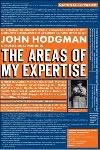It was only after the game was over that we realized that this had been a historic game.
Someone on WBCN asked whether, from this day forward, the people of San Diego would talk about Troy Bleeping Brown the way a generation of Red Sox fans have said "Bucky Fucking Dent."
And, when you think about it, this was about all you can ask for in football. It wasn’t the Super Bowl, but the Super Bowl never is. It can’t be, really, because football at its best is played just outside the boundaries of athletic control, by men who know their limits and who are trying to do just a little bit more than they can, knowing that they can’t do it but that they must. Super Bowl teams almost always think themselves champions, so most of the game is played with care and caution, seeking small advantage by avoiding terrible blunder.
And so the best games are often earlier in the playoffs or in the regular season, games of consequence but games where at least one team is filled with doubt, The Patriots weren’t the best team, but in football there are ways for a somewhat inferior team to beat a superior opponent. It doesn’t happen often (as it does in baseball, where true excellence only emerges over the course of a weeks of play), and it doesn’t happen at random (as it seems to do, sometimes, in basketball). But it can be made to happen, sometimes, with skill and luck.
Usually, the solution for a weak team is to create one unexpected strength that the opponent can’t match. The only way for a weak team to create a strength is to create a weakness somewhere else, and then to find a way to patch the weakness. This is what football is about, at least as I (very imperfectly) understand it. For some reason, it’s seldom what the announcers and the talk show pundits discuss.
The two defining weaknesses of this Patriot team have been their receivers — they lost a bunch of pretty-good receivers last year and replaced them with cheap spare parts — and their defensive secondary, which is adequate when healthy but which has been spectacularly unhealthy for much of the past two years and has in consequence been a remarkable juggling act of novices, has-beens, and improvisations. One of those improvisations (mostly for last year) was using aging receiver Troy Brown as an extra cornerback. He’s not a great cornerback, but sometimes he’s been better than the alternatives.
And so, at the end of the game, Brady throws a floater on a hopeless fourth-and-five, the ball is intercepted, and the game is over. But the intended receiver was Troy Brown, who has spent two years playing part-time cornerback, which means for the past two years he has been practicing for this one moment, the split second when he could be exactly the right talent in exactly the right place, ready to strip the ball and to force the fumble that won the game. For that one moment, Troy Brown was exactly the right player with exactly the right preparation. Jerry Rice in his youth wouldn’t have helped. Steve Largent. Lance Alworth. Crazylegs Hirsch. Not even Troy Brown in his prime would have helped. For that one moment, you needed this Troy Brown.
And, there he was.











